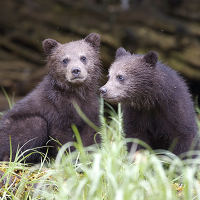
The Huntsville Forester reported on the program being organized by Nature Trails’ Robin Tapley.
“One of the region’s most experienced naturalists is offering small groups a chance to get an in-depth understanding of Algonquin Park flora and fauna in one of the most exclusive areas of the park,” wrote reporter Roland Cilliers. “Based out of the park’s Wildlife Research Station, the series of education programs focus on a number of specific areas, including wildlife photography, animal signs and behaviour and backcountry safety.”
A quick look at the Nature Trails website – particularly the Edu-Tourism® page – illustrates why APFA thinks this is a program that could be adopted by former trappers:
“In 2003 Nature Trails® partnered with Algonquin Provincial Park (Ministry of Natural Resources) and the Harkness Laboratory of Fisheries Research, to develop an innovative research and education program. The program was designed to allow the general public a hands-on opportunity to collect scientific data for the Harkness Laboratory and learn about the intricacies of aquatic, terrestrial and wildlife research on Lake Opeongo in Algonquin Provincial Park.”
We know that trappers have an incredible knowledge of their landscapes, the wildlife that inhabits them, as well as practical skills like backcountry safety, tracking, and so on. We also know that former bear hunt guides have turned into wildly successful bear photography guides.
For those who want to move away from the inherently inhumane practice of trapping, or have realized that the industry around them is dying, this could prove to be an invaluable opportunity for the future.
Our Living With Wildlife campaign has been a huge success – thanks to the donations of our many supporters and members. Become a monthly donor for as little as $5/month and help us protect even more wild families and habitats today.

